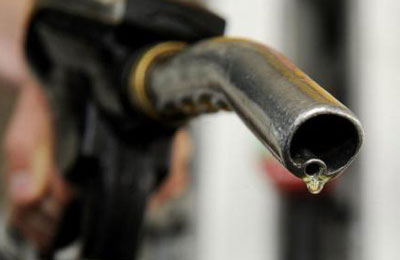
Oman may cut petrol subsidies, no bond plans
Kuwait, May 7, 2014
Oman's government is looking closely at cutting costly subsidies, with petrol an obvious target, the minister for financial affairs said on Wednesday, as the country grapples with rising pressure on its public finances.
The Gulf Arab sultanate ramped up state spending by more than 27 percent from 2011 to 2013. The money went to welfare, public-sector wages and tens of thousands of new state jobs after protests demanding employment and an end to corruption.
But realizing the deteriorating health of public finances, the small non-OPEC oil exporter has shifted towards a more cautious policy in 2014. It is budgeting for spending of 13.5 billion rials ($35.1 billion), slightly less than in 2013.
Asked what steps the government would take to make its budget more sustainable, Darwish al-Balushi said that subsidies were an obvious target.
"Petrol is one of them, the obvious one of course, because now there is a huge gap between prices that are implemented today and international prices," he told reporters, in some of his first comments on the topic.
"We have to calculate all the issues that are related. These subsidies are social objectives, so we have to strike a balance between the monetary side of it and the social impact," he said on the sidelines of a Gulf finance ministers meeting in Kuwait.
Asked when Oman was going to decide on potential changes to subsidy levels, Balushi said: "It's an exercise that is going on. It could be this year, it could be next year."
The International Monetary Fund has said that it would be difficult for Oman to put its state finances on a sustainable footing without changing subsidies, mainly on fuel, adding that domestic fuel prices should be raised gradually.
How Oman deals with the subsidies bill will be relevant to other states in the Gulf Arab region that provide reduced-cost petrol and electricity to their residents. Kuwait plans to report the findings of its own subsidies review later this year.
Subsidies on petroleum products in Oman rose 5.5 percent to 1.0 billion rials in 2012, accounting for 53 percent of the overall 1.9 billion rials of state support for the private sector, a central bank report showed last year.
The IMF painted a bleak picture of Oman's public finances last month. It said the sultanate was likely to slide into a deficit of 3.0 percent of gross domestic product in 2015, which would widen to 11.4 percent in 2019 as weaker oil prices eroded export receipts.
Balushi said he did not agree with the IMF projection. Expenditure will grow less in 2015 than before, he said, and oil production was expected to rise, increasing the comfort zone. No extra spending was planned this year, he added.
"This year, we are not expecting any surprises. The expenditure is under control so hopefully we will end up with the budgeted expenditure and we will not exceed it," he said.
Balushi said that Oman would not issue an international sovereign bond this year, with timing dictated by 2015 budget requirements.
"The conventional bond is not this year. It will be decided based upon the fundamentals on which our next year's budget will be prepared," he said.
"The priority is for the Islamic sukuk, but the final decision for the timing is not yet taken. The process is on, but whether we will eventually go to the market this year or perhaps the beginning of the next year, that is to be decided," he said.
Further privatisations of state-owned companies were also unlikely in 2014, he added.
"If not this year, next year they will be definitely (privatized)," Balushi said, adding the further sales will be decided during 2015 budget preparations in October and November. Balushi said in March that Oman was likely to privatise one more state company this year. – Reuters







